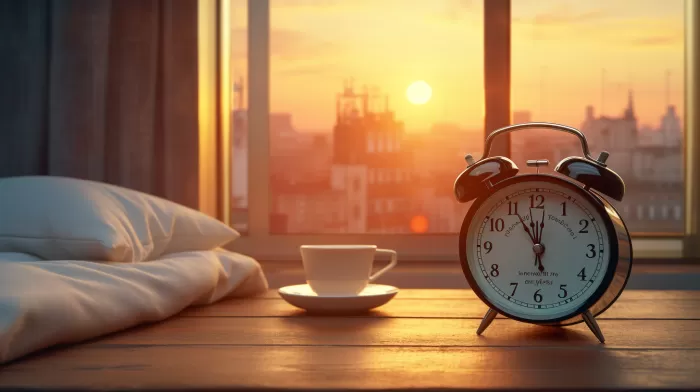Does daylight saving time (DST) leave you feeling out of sync? While many of us dread the clocks falling back and losing an hour of sunlight, springing forward has its challenges too – mostly the minor disruption to our circadian rhythm. However, a Finnish study indicates that adjusting the clock by an hour during DST transitions may be linked to an 8% increased risk of ischemic stroke. Among patients hospitalized during the week following a DST transition, those with cancer were 25% more likely to experience a stroke during that period, and patients aged 65 and over were 20% more likely.
Apart from a potential increase in stroke risk, DST can also affect your mood due to the lack of sleep. So, to make the time change transition smoother and keep your circadian rhythm in check, consider these 5 tips:
Manage your caffeine and alcohol intake
Avoid consuming any more caffeine or alcohol than your body is used to during DST, as these substances can disrupt your sleep pattern, making it harder to adjust to the new time.
Optimize your exposure to light
During the transition, try to manage your exposure to light—avoid too much in the evening (especially blue light from electronics) and aim to get more light exposure in the mornings. This helps reset your internal clock and make the adjustment a little bit easier.
Avoid scheduling stressful activities
It’s best to try and avoid scheduling anything stressful, strenuous, or demanding on the days following the time change if possible. That way, you won’t compound the effects of the already stressful situation on your internal clock.
Increase fiber intake
By adding more fiber to your diet, you can decrease your stroke risk by as much as 34%. This simple change in your diet can make a significant difference during the DST transition, whether you’re springing forward or falling backward.
Utilize safe, natural sleep aids
In the days following the time change, take advantage of natural sleep aids to help you adjust to your new bedtime. Melatonin and tart cherry juice are both effective, safe options for promoting sleep, especially when you’re having trouble adjusting to the new time.
Making these small adjustments during the DST transition can help you maintain a balanced circadian rhythm, minimize disruption to your mood and sleep, and lower your risk of health complications like stroke. So, as we spring forward, remember these tips and make the time change an easier process for your body and mind.



